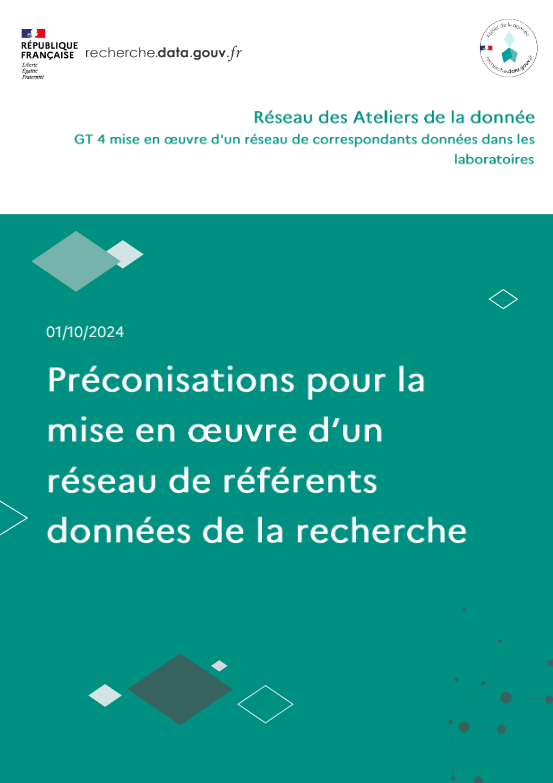Setting up a network of data referents? Follow the guide!
The Working Group (WG) 4 of the Data Management Clusters Network has just published its Recommendations for the implementation of a network of research data referents (in French). As the WG has achieved all its objectives, it is now closed.
Summary of the report

This report proposes recommendations for the establishment and management of a network of dedicated data stewards for research data management. The main objective is to enable institutions to create an effective and structured network in order to better manage and enhance research data, particularly within the framework of the Recherche Data Gouv ecosystem. These recommendations mainly concern data management clusters but can be applied to any institution or organization seeking to establish such a network.
The preamble emphasizes the importance of assessing existing networks before creating a new network of data stewards. It is essential to ensure that no similar networks exist, particularly those related to HAL or computing. If no such network is in place, the report recommends securing political and institutional support to legitimize the initiative and then defining a launch strategy that includes the network’s scope, recruitment methods, desired profiles, and the tasks assigned to the stewards.
The creation of the network requires close coordination with local and national stakeholders to avoid duplication and maximize synergies. The network offers numerous advantages, including direct support to laboratories and better dissemination of best practices in data management. The network’s name should reflect its mission, and institutional support, although not mandatory, is highly recommended to ensure the network’s sustainability and effectiveness. The size and structure of the network should be adapted to the diversity of the laboratories it serves.
Once the network is established, it is important to formalize the stewards’ tasks through charters or mission statements. This helps clarify expectations and strengthens participants’ commitment. Member motivation is crucial, and the report recommends prioritizing volunteer participation while also recognizing and rewarding involvement through various means (teaching relief, recognition in professional portfolios, etc.). The goal is to foster a sense of belonging and to develop professional skills in data management.
Finally, the network’s activities should be organized collaboratively, with regular meetings, newsletters, and ongoing training tailored to the stewards' needs. Interactions with other similar networks, such as those focused on open science tools, are encouraged to share resources and best practices. Communication about the network is also a key aspect for its visibility and long-term success.
